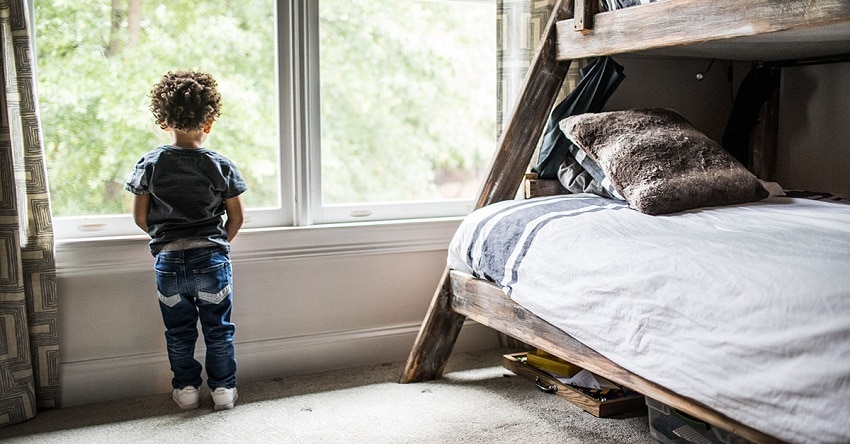Greater than the blues
Childhood depression differs from a moody kid who sometimes appears lower or upset. Children, like adults, have occasions once they feel “blue” or sad. Emotional fluctuations are common.
But when individuals feelings and behaviors traverses two days, they might be an indication of an affective disorder like depression.
Depression isn’t a grownup-only illness. Children and adolescents can and do develop depression. Children might have to go undiagnosed and untreated because parents and caregivers may find it difficult to recognize signs of the disorder.
Depression affects about 3 percentTrusted Supply of U.S. children. The persistent sadness and signs and symptoms can hinder daily existence, interrupting school and social activities.
Childhood depression is really a serious mental ailment, but it’s treatable. Continue reading to understand more about the twelve signs, signs and symptoms, causes, and risks connected with childhood depression.
Exactly what does depression seem like inside a child?
Kids with depression frequently experience most of the same depression signs and symptoms as adolescents and adults do. However, children may have a problem expressing themselves which feelings due to their limited emotional vocabulary.
Kids with depression might not experience many of these signs and symptoms. Some might become more prominent than the others.
Indicators a young child might have depression
Symptoms of depression are feelings or changes that oldsters and caregivers can easily see on their own.
Children might not be sure how you can express their feelings for you, or they might be reluctant to. These indicators can happen in youngsters with depression:
- irritability or anger
- alterations in behavior and temperament
- elevated or decreased appetite
- elevated or decreased sleep
- emotional or vocal outbursts
- frequent expression of physical illness, for example headaches or stomachaches
- reduced concentration
- defiance
- loss of performance in school
- expressing negative thinking (self-critical comments or complaining)
- speaking about dying or dying
- Suicide risk
Childhood depression may cause ideas of suicide, even suicidal behavior. Actually, suicide may be the third leading causeTrusted Supply of dying for kids ages 5 to 14.
If your little one continues to be identified as having depression or else you suspect they might be depressed, it’s vital that you watch them for indicators which help them seek help.
What can cause childhood depression?
Childhood depression might be the effect of a mixture of factors. These risks alone might not take into account the atmosphere disorder, however they might may play a role.
These risks increase a child’s chances for developing depression:
- Health. Kids with chronic or severe health conditions are more inclined to be depressed. Including weight problems.
- Demanding occasions. Changes in your own home, in school, or with buddies can increase a child’s risk for depressive signs and symptoms.
- Atmosphere. A chaotic or demanding home existence can place a child at and the higher chances for any mood disorder like depression.
- Genealogy. Children who’ve family people with mood disorders or depression might be more prone to develop depression in a youthful age.
Biochemical imbalances. Uneven amounts of certain hormones and chemicals may impact the way the brain works. This could make depression.
- operated by Rubicon Project
- Perils of childhood depression
Childhood depression is really a serious condition, but it’s treatable. However, if it is not dealt with, children can experience effects for years to come.
These complications include:
- suicidal ideas or behaviors
- worsening signs and symptoms
- elevated chance of developing depression that’s worse or prolonged later
- severe depressive episodes
- other mood disorders
How you can help a young child that has depression
Strategy to kids with depression involves therapy and prescription medicine. Some children will benefit from one of these simple – others could use a mixture.
These aren’t lifelong treatments. Your child’s physician will suggest a plan for treatment, and they’ll decide when it’s suitable for your son or daughter to prevent utilizing it.
Your skin therapy plan for childhood depression frequently depends upon the seriousness of signs and symptoms. The good thing is the right care might help your son or daughter find respite from their signs and symptoms.
Therapy
If your child is afflicted with depression, the very first type of treatment methods are frequently psychiatric therapy. This kind of therapy can address the emotional and existence factors that increase a child’s risk for depression, for example atmosphere and demanding occasions.
Cognitive behavior therapy (CBT) is generally accustomed to treat depression. This kind of therapy involves speaking through feelings and encounters, analyzing areas for changes, and finding positive methods to make individuals changes.
For youthful children, traditional talk therapy might not be as effective due to their limited vocabulary. Play therapy, which utilizes toys and entertainment, might help children learn how to reinforce their feelings and encounters. Art therapy, which utilizes painting, drawing, along with other artistic techniques, is a kind of significant therapy that might help children deal with signs and symptoms of depression, too.
Medication
By 2015, the U.S. Fda (Food and drug administration) has five antidepressant medications to treat MDD in youngsters. These recommendations vary by age, therefore the physician will think about your child’s age when selecting the very best medication treatment.
Based on the U.S. Department of Health insurance and Human Services (HHS), the next medications can be utilized in treating kids with MDD:
- Zoloft® (sertraline)
- Lexapro® (escitalopram)
- Luvox® (fluvoxamine)
- Anafranil® (clomipramine)
- Prozac® (fluoxetine)
An uncommon side-effect of those medications in youngsters might be an elevated chance of suicide. Parents and caregivers of kids who’re using this medication ought to carefully monitor the youngster for changes and seek immediate the aid of a physician when they become concerned.
Children taking these medicines shouldn’t quit taking them without permission in the physician. Quitting the medication can result in significant negative effects.

